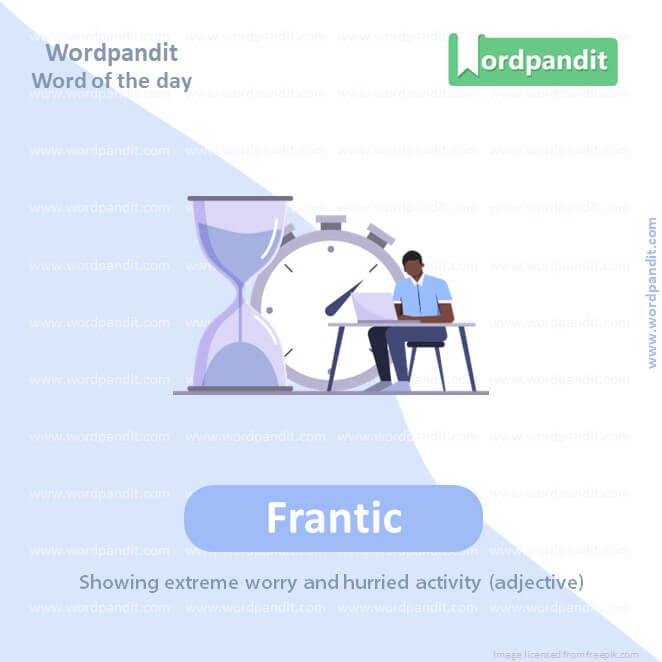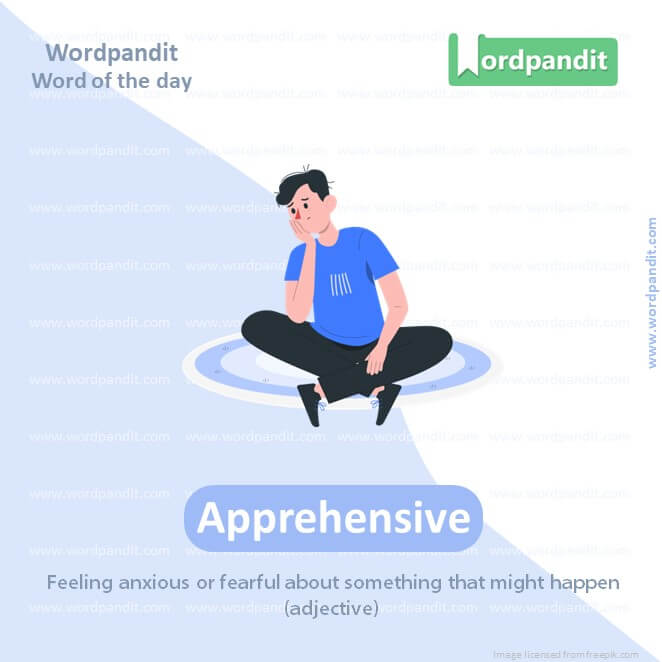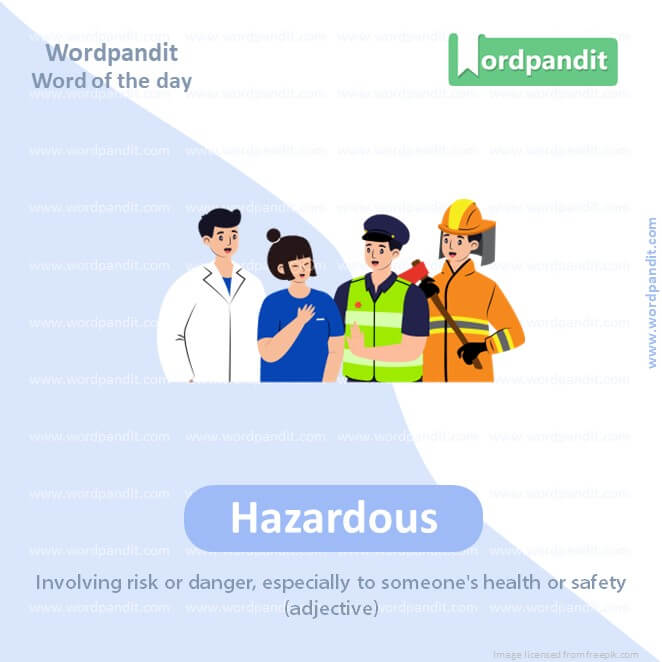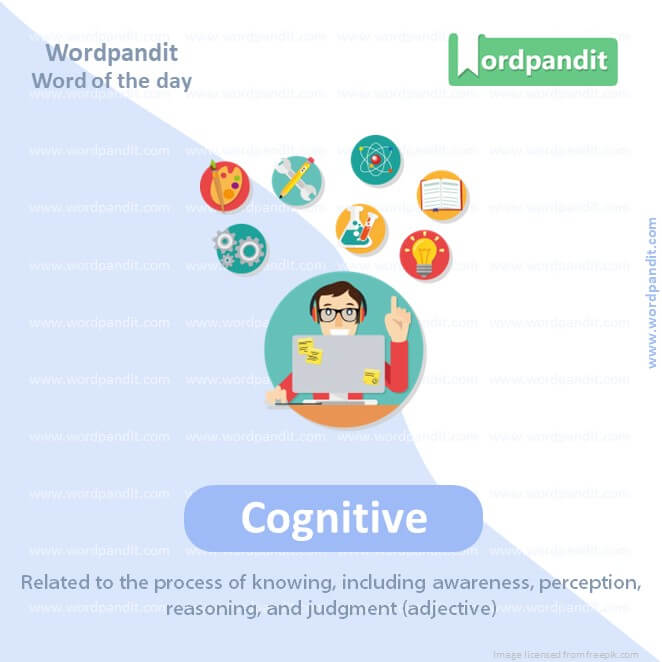Daily Vocabulary Words: List of Daily Used Words in Leading International Newspapers
Hi there. Welcome to this special section @ Wordpandit.
Our endeavour here is very simple: to highlight important daily vocabulary words, which you would come across in leading newspapers in the country. We have included the following newspapers in our selection:
• The New York Times
• The Washington Post
• Scientific American
• BBC
• The Guardian
• Psychology Today
• Wall Street Journal
• The Economist
We are putting in extensive work for developing your vocabulary. All you have got to do is be regular with this section and check out this post on a daily basis. This is your repository of words that are commonly used and essentially, we are posting a list of daily used words. Hence, this has significant practical application as it teaches you words that are used commonly in leading publications mentioned above.
Visit the website daily to learn words from leading international newspapers.

WORD-1: Frantic
CONTEXT: One evening, after a frantic day of family vacationing on Martha’s Vineyard – beaches, ice-cream shops, arcades – my cousin Elizabeth and I escaped to a small, dark bar, soothed by the cool whir of air conditioning and the quiet clink of ice in our glasses.
SOURCE: Psyche
EXPLANATORY PARAGRAPH: Imagine you can’t find your favorite toy and you’re looking everywhere really fast and feeling worried. That’s what ‘frantic’ means. It’s like being very, very worried and busy trying to fix something or find something.
MEANING: Showing extreme worry and hurried activity (adjective).
PRONUNCIATION: fran-tik
SYNONYMS: Frenzied, Hysterical, Panicked, Desperate, Wild, Feverish
USAGE EXAMPLES:
1. The mother was frantic when she couldn’t find her child in the park.
2. He made a frantic search for the missing report.
3. The cat became frantic when it saw the dog.
4. There was a frantic rush to finish the project on time.

WORD-2: Arcades
CONTEXT: One evening, after a frantic day of family vacationing on Martha’s Vineyard – beaches, ice-cream shops, arcades – my cousin Elizabeth and I escaped to a small, dark bar, soothed by the cool whir of air conditioning and the quiet clink of ice in our glasses.
SOURCE: Psyche
EXPLANATORY PARAGRAPH: Think of arcades as fun places with lots of video games and machines where you can play games like racing cars or shooting aliens. People go there to have fun, play games, and sometimes win prizes. It’s like a big room full of games that you can play.
MEANING: Places that have a collection of amusement machines and video games for public entertainment (noun).
PRONUNCIATION: ar-kayds
SYNONYMS: Game center, Amusement arcade, Playland, Gaming zone, Entertainment complex
USAGE EXAMPLES:
1. They spent the afternoon playing games in the arcade.
2. The arcade had the latest video games.
3. For her birthday, they went to an arcade to play.
4. The shopping mall had a small arcade area for kids.

WORD-3: Apprehensive
CONTEXT: We had sent off my two preteens into town with $30 each and the charge to have fun. Romping through the cosy downtown of Oak Bluffs at night was among the favourite memories of my and Elizabeth’s own childhood summers. In contrast, my kids were a bit more apprehensive about being out on their own.
SOURCE: Psyche
EXPLANATORY PARAGRAPH: When you feel a little scared about something that might happen, like the first day at school, that’s being apprehensive. You’re not sure if it will be good or bad, so you feel nervous.
MEANING: Feeling anxious or fearful about something that might happen (adjective).
PRONUNCIATION: ap-ri-hen-siv
SYNONYMS: Anxious, Worried, Nervous, Fearful, Uneasy, Tense
USAGE EXAMPLES:
1. She was apprehensive about starting a new school.
2. The night before the test, he felt very apprehensive.
3. Apprehensive about the journey, they checked the car thoroughly.
4. She gave an apprehensive glance at the dark sky.

WORD-4: Hazardous
CONTEXT: Three sips into our drinks, I received a text. The preteens, apparently still more pre than teen, had immediately blown all their money at the toy shop and wanted to be taken back to the vacation rental. I sighed, and thought. Then I texted them the address of our vacation house and proposed that they find their way back on their own. It would not be a hazardous journey – just a few blocks away in a neighbourhood full of gingerbread houses and families spilling out on to their warmly lit porches.
SOURCE: Psyche
EXPLANATORY PARAGRAPH: Hazardous is like when something is dangerous and can hurt you, like crossing a busy street without looking or touching a hot stove.
MEANING: Involving risk or danger, especially to someone’s health or safety (adjective).
PRONUNCIATION: haz-er-dus
SYNONYMS: Dangerous, Risky, Unsafe, Perilous, Treacherous, Threatening
USAGE EXAMPLES:
1. Smoking is hazardous to your health.
2. They work in hazardous conditions.
3. Hazardous chemicals should be handled with care.
4. The journey became hazardous due to bad weather.

WORD-5: Cognitive
CONTEXT: But I believed that it would be a growth experience for them to navigate the route on their phones (a cognitive challenge), while alone at night (an emotional challenge), and then explain to my waiting uncle why they’d returned on their own (both shy, they would find this a social challenge).
SOURCE: Psyche
EXPLANATORY PARAGRAPH: Cognitive is about thinking and understanding. Like when you solve puzzles or remember the way to your friend’s house, that’s using your cognitive skills.
MEANING: Related to the process of knowing, including awareness, perception, reasoning, and judgment (adjective).
PRONUNCIATION: cog-ni-tiv
SYNONYMS: Intellectual, Mental, Thinking, Perceptive, Reasoning
USAGE EXAMPLES:
1. Reading helps in cognitive development.
2. The game is designed to enhance cognitive skills.
3. There was a study on cognitive behavior in animals.
4. Cognitive therapy focuses on changing negative thoughts.
WORD-6: Impulse
CONTEXT: Our natural impulse as caregivers is to protect children from danger and harm, no matter the cost. This primal urge is a good fit for the challenges of parenting young children, who seem to enjoy routinely flinging themselves into harm’s way. But during adolescence and beyond, so often this impulse is the wrong one.
SOURCE: Psyche
EXPLANATORY PARAGRAPH: Impulse is like when you suddenly want to do something without thinking about it first, like eating a cookie just because you saw it, even if you’re not hungry.
MEANING: A sudden desire or urge to do something without thinking about the consequences (noun).
PRONUNCIATION: im-puls
SYNONYMS: Urge, Instinct, Whim, Spontaneity, Compulsion, Desire
USAGE EXAMPLES:
1. He bought the car on an impulse.
2. She had a sudden impulse to hug her friend.
3. Impulse shopping can lead to unnecessary expenses.
4. He struggled to control his impulse to laugh.
WORD-7: Adolescence
CONTEXT: Our natural impulse as caregivers is to protect children from danger and harm, no matter the cost. This primal urge is a good fit for the challenges of parenting young children, who seem to enjoy routinely flinging themselves into harm’s way. But during adolescence and beyond, so often this impulse is the wrong one.
SOURCE: Psyche
EXPLANATORY PARAGRAPH: Adolescence is the time when you’re not a little kid anymore but not yet an adult. You grow a lot, start to think differently, and might have many new feelings.
MEANING: The period in a person’s life when they are developing into an adult (noun).
PRONUNCIATION: ad-o-les-sence
SYNONYMS: Teenage years, Youth, Puberty, Teenhood, Juvenescence
USAGE EXAMPLES:
1. During adolescence, many people experience mood swings.
2. She wrote a book about her experiences in adolescence.
3. Adolescence is a crucial time for educational development.
4. Many important life skills are learned in adolescence.
WORD-8: Mettle
CONTEXT: To truly grow, our young people need to enter uncertain situations and learn that they have the internal resources to cope with them. We adults need to step back into the wings and let them test their mettle against the world.
SOURCE: Psyche
EXPLANATORY PARAGRAPH: Mettle is like being really brave and strong in tough situations, like not giving up when a game is hard or being calm during a thunderstorm.
MEANING: The ability to cope well with difficulties or to face a demanding situation in a spirited and resilient way (noun).
PRONUNCIATION: met-l
SYNONYMS: Courage, Bravery, Spirit, Resilience, Fortitude, Tenacity
USAGE EXAMPLES:
1. She showed her true mettle during the competition.
2. It takes mettle to stand up for what you believe in.
3. The team proved their mettle with a stunning victory.
4. Facing adversity tests a person’s mettle.
WORD-9: Obstacle
CONTEXT: If you are a parent, caregiver or educator, you may often find yourself wondering when it is better to remove an obstacle for the young person in your care, and when it is better instead to step back and let them venture forth on their own – or even give them an encouraging nudge to take on a challenge or face their fears.
SOURCE: Psyche
EXPLANATORY PARAGRAPH: An obstacle is something that makes it hard to do what you want, like a big rock in the way when you’re running, or a hard math problem.
MEANING: Something that blocks one’s way or prevents or hinders progress (noun).
PRONUNCIATION: ob-stuh-kul
SYNONYMS: Barrier, Hindrance, Blockage, Impediment, Obstruction, Hurdle
USAGE EXAMPLES:
1. The fallen tree was an obstacle in the road.
2. Overcoming obstacles can make you stronger.
3. Lack of funding was a major obstacle for the project.
4. She viewed every difficulty as an obstacle to be overcome.
WORD-10: Equine
CONTEXT: Perhaps your child is mid-adolescence and all their friends are starting driver’s ed, but every time you bring it up they get nervous and change the subject. Or your equine-loving preteen is considering a summer camp where she’d gallop the day away, but she’s scared to be away from home for the first time. Maybe you are a teacher reading about escalating rates of student anxiety and wondering whether you should do away with those formidable class presentations.
SOURCE: Psyche
EXPLANATORY PARAGRAPH: Equine is a fancy word for anything to do with horses. Like a horse itself, or things made for horses, or even how horses behave.
MEANING: Relating to horses (adjective).
PRONUNCIATION: e-kwine
SYNONYMS: Horse-like, Horsey, Horse-related, Equestrian, Hippic
USAGE EXAMPLES:
1. She has a great interest in equine activities.
2. The equine sculpture looked very realistic.
3. They run an equine therapy program.
4. His love for equine sports led him to become a jockey.
Vocabulary List English
In the vibrant marketplace of language learning, a ‘vocabulary list English’ is akin to a beautifully stocked grocery list – a tool that equips learners with basic ingredients necessary for fluent communication. However, absorbing the ‘vocabulary list English’ proficiently requires more than mere memorization; it calls for an informed and strategic method of learning.
The initial step towards mastering ‘vocabulary list English’ involves adopting an interactive approach. Instead of just reading and revising, use flashcards or digital memory tools to make the process more engaging. Such modes of learning not only retain interest but also boost retention and comprehension.
When learning ‘vocabulary list English’, practice is a fundamental element. Use these words in routine conversations, emails, or social media posts. The more frequently you use the words, the swiftly their usage becomes second nature.
A crucial part of understanding ‘vocabulary list English’ lies in knowing the context. Simply knowing a word’s meaning isn’t enough; you must know how it’s used in different situations. Reading a variety of materials, from fiction and newspapers to blogs and digital content, offers insight into the practical application of these words, deepening your understanding.
Furthermore, it’s vital to frequently revise ‘vocabulary list English’. Call back to what you’ve learned and give it another run-through. This habit strengthens memory retention and enhances the likelihood of the words being accessible when needed.
In conclusion, mastering ‘vocabulary list English’ is achieved through a blend of engaging tools, active practice, contextual understanding, and regular revision. These strategies, combined, can make the task of mastering ‘vocabulary list English’ a less overwhelming and more rewarding journey. As you venture into this process, you grow and expand your English vocabulary, achieving a heightened level of fluency and confidence in your English communication abilities.







